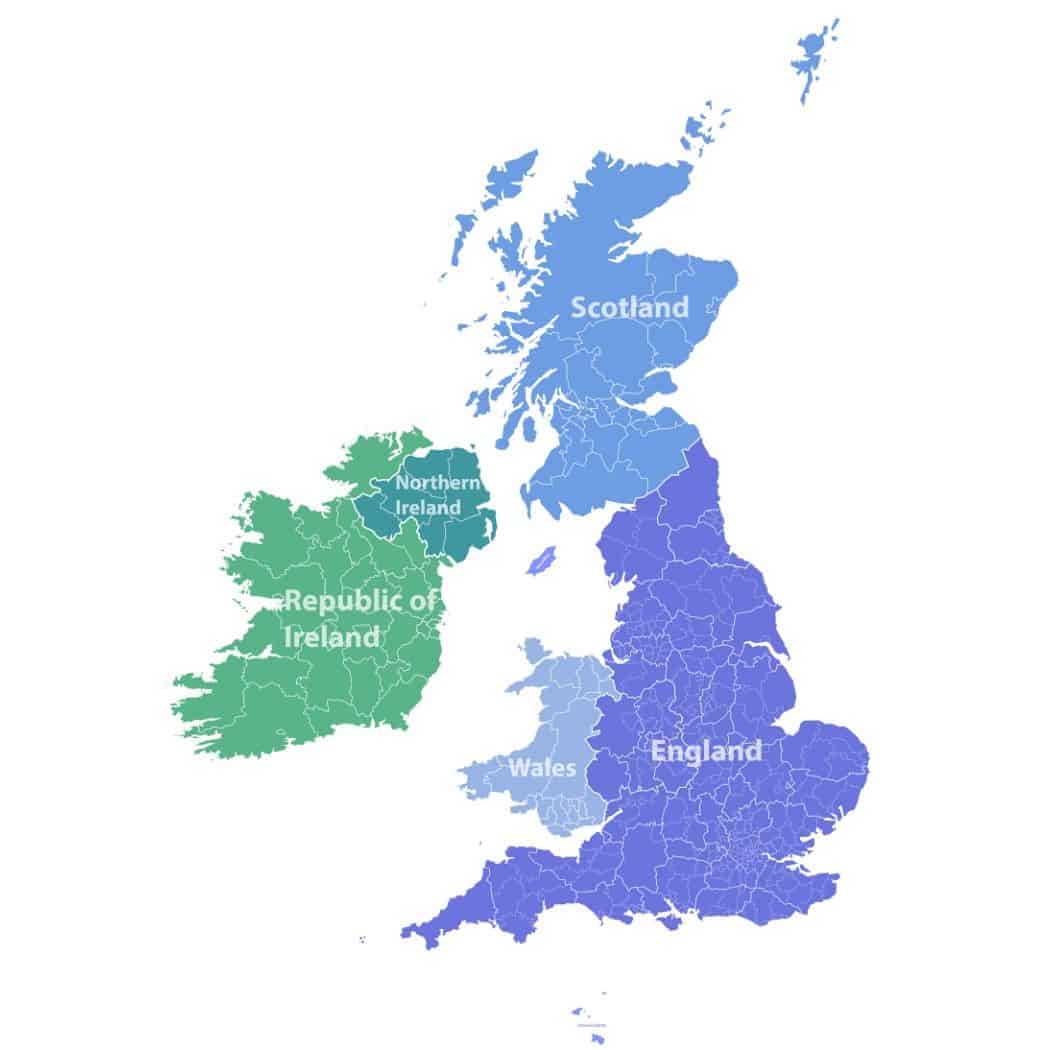Is Scotland Part Of The UK? Scotland's Role In The United Kingdom
Scotland, renowned for its dramatic landscapes and rich cultural heritage, has a distinctive place in the United Kingdom.
Sep 09, 20243.9K Shares188.4K Views

Scotland, with its stunning landscapes and vibrant culture, holds a unique position within the United Kingdom. This article explores Scotland's role in the UK, its political and legal status, recent debates about its future, and its cultural and economic contributions.
The United Kingdom: An Overview
The United Kingdom (UK) is a sovereign nation composed of four countries: England, Scotland, Wales, and Northern Ireland. The UK's formation began in 1707 with the Act of Union, which united England and Scotland into a single kingdom known as Great Britain. This union was later expanded in 1801 to include Ireland, forming the United Kingdom of Great Britain and Ireland. After Ireland's independence in 1922, the UK was renamed the United Kingdom of Great Britain and Northern Ireland.
Scotland: A Distinct Country
Scotland, one of the UK's four constituent countries, stands out with its own identity, both culturally and legally. While it shares political and economic responsibilities with the UK, Scotland has preserved its unique heritage.
Historical Background
Scotland's historyas an independent nation stretches back to ancient times, with its own monarchs and legal traditions. The Kingdom of Scotland operated independently until the Act of Union in 1707. Despite this union, Scotland has maintained its cultural and legal distinctiveness.
Key Characteristics
Scotland is renowned for its cultural richness, including its own legal system, education system, and traditions. Scottish Gaelic, though not widely spoken, reflects the country's distinct cultural heritage. Additionally, Scotland's legal system operates independently from that of England and Wales, based on its own set of laws and judicial practices.
Scotland's Political And Legal Status
Devolved Government
Scotland has enjoyed a degree of political autonomy since the Scottish Parliamentwas established in 1999. This devolved government allows Scotland to legislate on various issues such as education, health, and transportation, while still being part of the UK.
Reserved Powers
Certain areas remain under the jurisdiction of the UK Parliament, including foreign policy, defense, and immigration. This division of powers ensures that Scotland can manage local matters while the UK government handles broader national and international issues.
Scotland's Relationship With The UK Government
Scotland’s interaction with the UK Parliament involves both cooperation and tension. While the Scottish Parliamentmanages local issues, the UK Parliament retains authority over national and international matters. This arrangement allows Scotland to address its domestic needs while contributing to the UK's overall governance.
Recent Developments And Discussions
Political Debates
The question of Scotland's future within the UK has been a prominent topic in recent years. Discussions about Scottishindependence have been marked by referendums and political campaigns, reflecting diverse opinions on whether Scotland should remain part of the UK or seek full independence.
Referendums
The most significant referendum on Scottish independence occurred in 2014 when the majority voted to remain part of the UK. However, the debate continues, with discussions about the possibility of another referendum and the implications for Scotland's future.
Scotland's Cultural And Economic Contributions
Cultural Impact
Scotland's cultural contributions are significant. From the Edinburgh Festival Fringeto its traditional music and dance, Scotland enriches the UK's cultural landscape. Its history and traditions add depth to the UK's diverse heritage.
Economic Contributions
Scotland plays a vital role in the UK’s economy through various industries. Key sectors include oil and gas, tourism, and renewable energy. Scotland's natural resources and economic activities have a substantial impact on the UK's economic health.
Challenges And Opportunities
Current Challenges
Scotland faces challenges in its relationship with the UK, including debates over autonomy and economic disparities. These challenges highlight the ongoing discussions about Scotland's place within the UK and its future direction.
Opportunities For Development
Despite these challenges, Scotland has opportunities for growth. Enhanced devolution and development in key sectors offer the potential to strengthen Scotland's role within the UK while addressing its unique needs.
Your Questions Answered
What Is The United Kingdom?
The United Kingdom (UK) is a sovereign nation consisting of four countries: England, Scotland, Wales, and Northern Ireland. It was formed through a series of unions, starting with England and Scotland in 1707 and later including Ireland until 1922.
How Does Scotland Fit Into The UK?
Scotland is one of the four countries of the UK. It maintains a distinct cultural and legal identity while sharing political and economic responsibilities with the rest of the UK. Scotland has its own devolved government and parliament that manage local affairs.
What Powers Does The Scottish Parliament Have?
The Scottish Parliament has devolved powers over areas such as education, health, and transportation. It can legislate on these matters independently, while the UK Parliament retains control over reserved areas like foreign policy and defense.
What Are The Latest Discussions About Scotland’s Future?
Recent discussions about Scotland’s future involve debates on Scottish independence and the possibility of another referendum. These discussions reflect differing opinions on whether Scotland should remain part of the UK or seek full independence.
How Does Scotland Contribute To The UK?
Scotland contributes to the UK through its cultural heritage, economic activities, and natural resources. Its cultural events, industries like oil and gas, and economic activities play a significant role in the UK's overall economy.
Quick Recap
Scotland's role within the UK is multifaceted. As a distinct country with its own cultural and legal identity, Scotland operates with political autonomy while remaining part of the United Kingdom. Recent debates about Scottish independence and ongoing discussions about its future reflect the dynamic nature of Scotland's relationship with the UK.
Latest Articles
Popular Articles